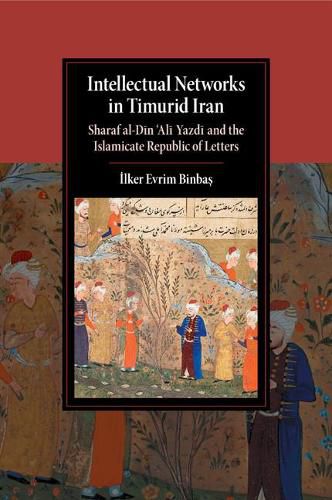Readings Newsletter
Become a Readings Member to make your shopping experience even easier.
Sign in or sign up for free!
You’re not far away from qualifying for FREE standard shipping within Australia
You’ve qualified for FREE standard shipping within Australia
The cart is loading…






By focusing on the works and intellectual network of the Timurid historian Sharaf al Din ‘Ali Yazdi (d.1454), this book presents a holistic view of intellectual life in fifteenth century Iran. Ilker Evrim Binbas argues that the intellectuals in this period formed informal networks which transcended political and linguistic boundaries, and spanned an area from the western fringes of the Ottoman State to bustling late medieval metropolises such as Cairo, Shiraz, and Samarkand. The network included an Ottoman revolutionary, a Mamluk prophet, and a Timurid occultist, as well as physicians, astronomers, devotees of the secret sciences, and those political figures who believed that the network was a force to be taken seriously. Also discussing the formation of an early modern Islamicate republic of letters, this book offers fresh insights on the study of intellectual history beyond the limitations imposed by nationalist methodologies, established genres, and recognized literary traditions.
$9.00 standard shipping within Australia
FREE standard shipping within Australia for orders over $100.00
Express & International shipping calculated at checkout
By focusing on the works and intellectual network of the Timurid historian Sharaf al Din ‘Ali Yazdi (d.1454), this book presents a holistic view of intellectual life in fifteenth century Iran. Ilker Evrim Binbas argues that the intellectuals in this period formed informal networks which transcended political and linguistic boundaries, and spanned an area from the western fringes of the Ottoman State to bustling late medieval metropolises such as Cairo, Shiraz, and Samarkand. The network included an Ottoman revolutionary, a Mamluk prophet, and a Timurid occultist, as well as physicians, astronomers, devotees of the secret sciences, and those political figures who believed that the network was a force to be taken seriously. Also discussing the formation of an early modern Islamicate republic of letters, this book offers fresh insights on the study of intellectual history beyond the limitations imposed by nationalist methodologies, established genres, and recognized literary traditions.